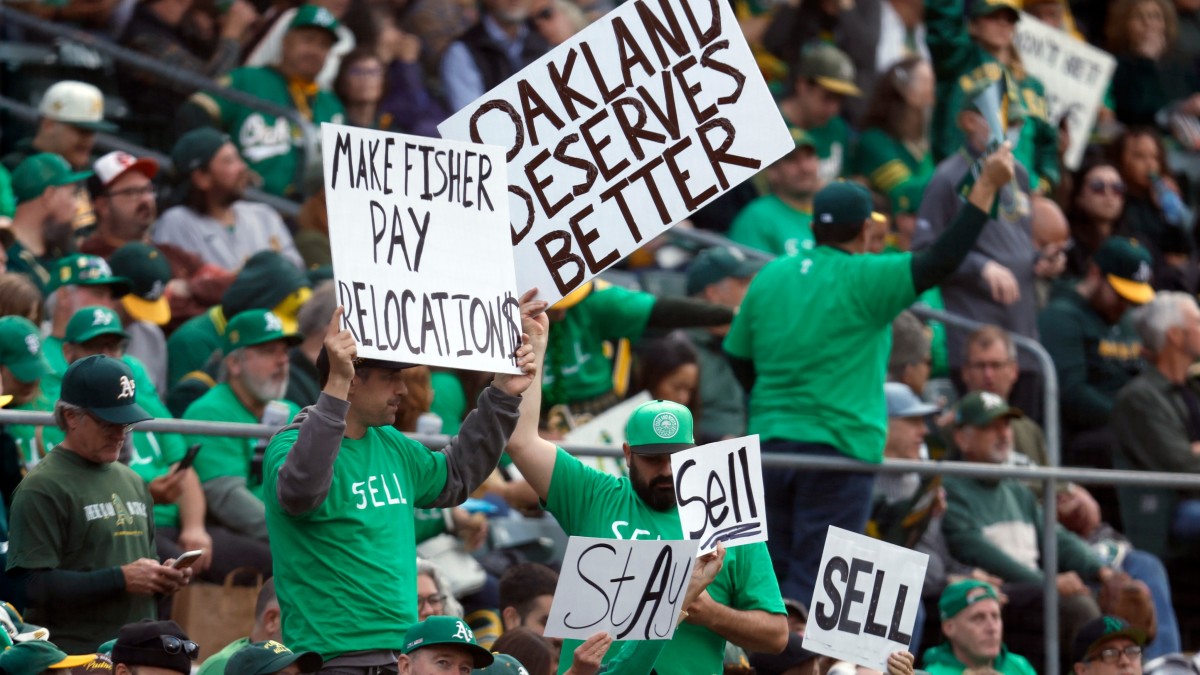SI:AM | Let the Party Start in Vegas

Good morning, I’m Dan Gartland. I’m sad we won’t have any more playoff games for a while.
In today’s SI:AM:
💸 The Heat’s looming payroll crunch
If you're reading this on SI.com, you can sign up to get this free newsletter in your inbox each weekday at SI.com/newsletters.
Vegas’s (not so) long wait is over
Just six years after entering the NHL, the Golden Knights are Stanley Cup champions.
Vegas’s success as an expansion franchise has been one of the most remarkable stories in sports since the team joined the league for the 2017–18 season. The Knights famously made the Stanley Cup Final in their first season, falling to the Capitals in five games, and have missed the playoffs only once in their history (last season).
Last night’s victory over the Panthers was a rout. Vegas won 9–3, the first team since the 1942 Maple Leafs to score nine goals in a Cup Final. Seven different players scored, led by captain Mark Stone’s hat trick. Jonathan Marchessault won the Conn Smythe Trophy as the best player of the postseason (having record 13 goals and 12 assists over the course of the playoffs), but he didn’t score in Game 5.
Stone was excellent in these playoffs, posting 11 goals and 13 assists, after the Golden Knights had to do some salary-cap gymnastics to make him available for the postseason. Stone was placed on long-term injured reserve in January after undergoing back surgery, meaning his $9.5 salary cap hit no longer counted against the cap. That allowed Vegas to add players like Jonathan Quick and Ivan Barbashev without going over the cap. Then, because there is no salary cap in the playoffs, Vegas activated Stone as soon as the postseason began. Whether you think the cap maneuvering was clever or cheap, the move worked out brilliantly for the Knights.
“This is why, right?” Stone said after last night’s game, reflecting on his road back from the injury. “This is why I didn’t want to miss this. I just got to win the Stanley Cup with 30 of my best friends. Guys who I come to the rink and hang out with every single day. I love coming to the rink, and that’s why. These guys make it all worth it.”
For the Panthers, like their NBA neighbors, last night’s loss marked the end of a spectacular underdog run. After barely squeaking into the playoffs, Florida knocked off three of the NHL’s best teams to reach the Final. But the luck ran out against Vegas. One explanation is that goalie Sergei Bobrovsky, who had been nearly unbeatable earlier in the playoffs, struggled in this series. After stopping 96.6% of the shots he faced against the Hurricanes in the last round, he stopped just 84.4% against Vegas. The other significant factor was that Matthew Tkachuk could no longer carry the team. Tkachuk had been the Panthers’ best offensive player during the rest of the postseason but found himself in the penalty box too often in the Final. He didn’t play last night due to an injury that was revealed after the fact to be a broken sternum. He was hurt during Game 3 and played through the injury in Game 4 but was a nonfactor. Tkachuk reportedly needed help from his brother, Brady, to get out of bed after a pregame nap before Game 4.
But back to Vegas’s win. The Golden Knights have done everything right since they entered the league, building a roster capable of winning consistently—and now, winning the big one. The favorable expansion draft set the franchise up well initially, but only six players from that original team remain: Marchessault, William Karlsson, Reilly Smith, Brayden McNabb, Shea Theodore and William Carrier. Vegas coach Bruce Cassidy decided to construct last night’s starting lineup out of five original Golden Knights (Carrier was the odd man out). The gesture got a raucous response from the home crowd. On a historic night, it was a reminder of how far the team has come—in a short period of time.
The best of Sports Illustrated

- What’s next for the Heat? With a ballooning payroll, Rohan Nadkarni wonders whether Miami can keep building a contender around Jimmy Butler.
- MLB has a payroll disparity. The Yankees’ owner blames those at the bottom, Stephanie Apstein writes.
- With the playoffs over, Kevin Sweeney has released an updated NBA draft big board.
- World No. 2 Jon Rahm says he put his phone in a drawer for four hours after the PGA-LIV merger news broke because the volume of calls and texts was so overwhelming.
- Fans in Oakland last night pulled off a “reverse boycott” to protest a potential relocation of the A’s with a season-high 27,759 people in the stands.
- The GOAT debate in men’s tennis is over, Jon Wertheim writes.
The top five...
… things I saw yesterday:
5. Gary Sánchez’s sixth home run for the Padres. He’s been cut by two teams already this season but is on fire in 13 games with San Diego.
4. Carlos Correa’s laser-beam walk-off homer for the Twins.
3. Baker Mayfield’s interaction with college nemesis Rodrigo Blankenship.
2. The “reverse boycott” from fans of the A’s at the Coliseum.
1. Mark Stone’s opening goal of Game 5.
SIQ
Which pitcher recorded the most 19-strikeout games in MLB history? (Today is the anniversary of his first such game.)
- Roger Clemens
- Randy Johnson
- Nolan Ryan
- Tom Seaver
Yesterday’s SIQ: Who is the only Japanese-born player to hit for the cycle in an MLB game?
- Shohei Ohtani
- Ichiro Suzuki
- Hideki Matsui
- Nori Aoki
Answer: Shohei Ohtani. Is there anything he can’t do?
Ohtani’s cycle came June 13, 2019, during his second season in the majors. He homered in the first inning, hit a double in the third and had a triple in the fifth, all off Rays starter Ryan Yarbrough. He then picked up a single in the seventh off Hunter Wood. And before you ask, no, this was not a “Tungsten Arm O’Doyle” game. The Angels won, 5–3.
"I’m simply very happy that I was able to accomplish this,” Ohtani said through an interpreter after the game. “There have been so many other great Japanese players that have come before me. Being the first one to accomplish it, I’m really happy, and it’s going to lead to a lot of confidence down the road.”
While it’s somewhat surprising that it took until 2019 for a Japanese player to hit for the cycle, it does make sense if you think about it more closely. There have been plenty of Japanese-born players in the majors, but the majority of them are pitchers. There have been 49 Japanese-born pitchers in the majors, compared to just 24 Japanese-born position players. Ohtani, of course, is on both lists.
